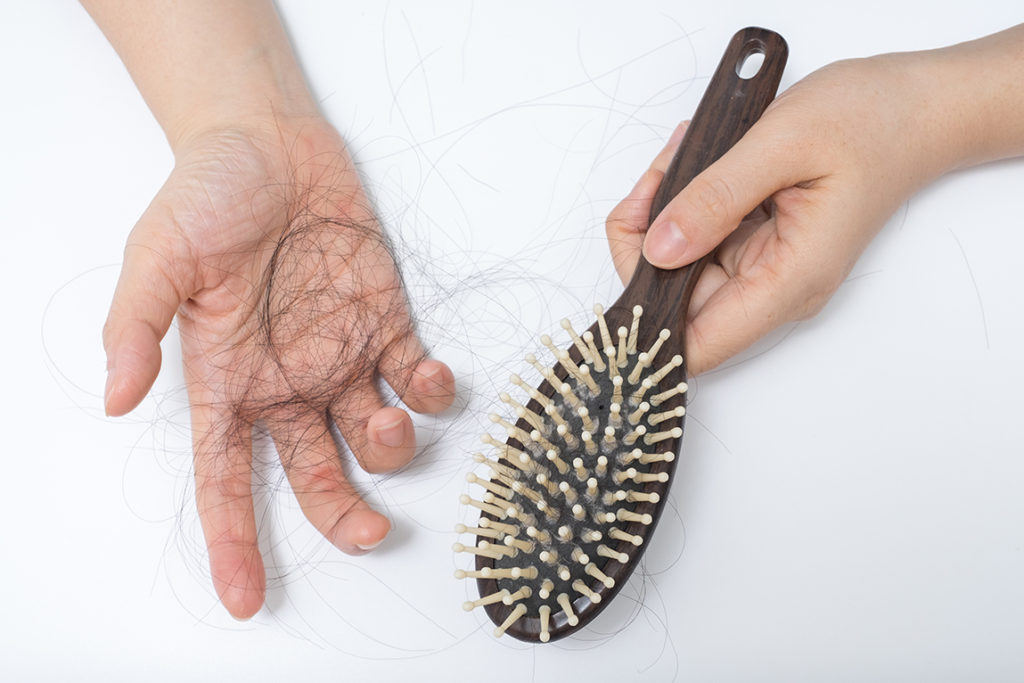
Hair loss: fact or fiction?
12th October 2018
Losing your hair can be a troubling experience, and the myths that exist around hair loss aren’t doing anything to dispel the worry and confusion that some people feel when they notice it. So, here’s the truth behind a few common myths…
Bald men have more testosterone
Male pattern baldness is the most common cause of hair loss. It’s caused by DHT – a by-product of testosterone – binding to receptors in the hair follicles and making them shrink and weaken, before they eventually die. Although levels of DHT in the body are usually elevated during phases of hair loss, it can happen to males with both high and low testosterone levels – it depends more on how sensitive the hair follicles are to the hormones.
Hair loss only comes with age
Unfortunately, hair loss can happen at any age. If you’re genetically predisposed to male or female pattern baldness then it can happen at any age after puberty, with the mid-twenties being the typical age that it starts. However, even if you don’t have a predisposition to androgenetic hair loss, you still might find that your hair naturally gets thinner as you get older – but it’s worth keeping an eye on it if you’re worried.
Over-styling can make your hair fall out
No amount of gels, mousses and sprays will cause hair loss. Nor will dyeing your hair – and over-washing won’t make it fall out either! Chemical treatments and hot styling tools can make it more brittle and cause it to break, but it’s not going to make you bald. You may notice that hairs are falling out when you wash your hair, but this is just down to hairs that have naturally shed being dislodged – so the longer you leave it between washing, the more hairs you’re likely to notice in the drain!
If your parents are bald, you will be too
There’s a common misconception that hair loss is inherited from the mother’s side of the family, but as there are around 200 genes that regulate hair growth, it can be linked to both the paternal and maternal sides. Although male pattern baldness is hereditary, it’s a consequence of your entire genetic background and is influenced by more than just your parents.
Hair loss treatments don’t work
There’s a wide range of effective surgical and non-surgical hair loss treatments available, from medication that will stimulate hair growth to hair transplant surgery, so the chances are there’ll be a treatment that works for you – book a free consultation with our team to find out how we can help.


